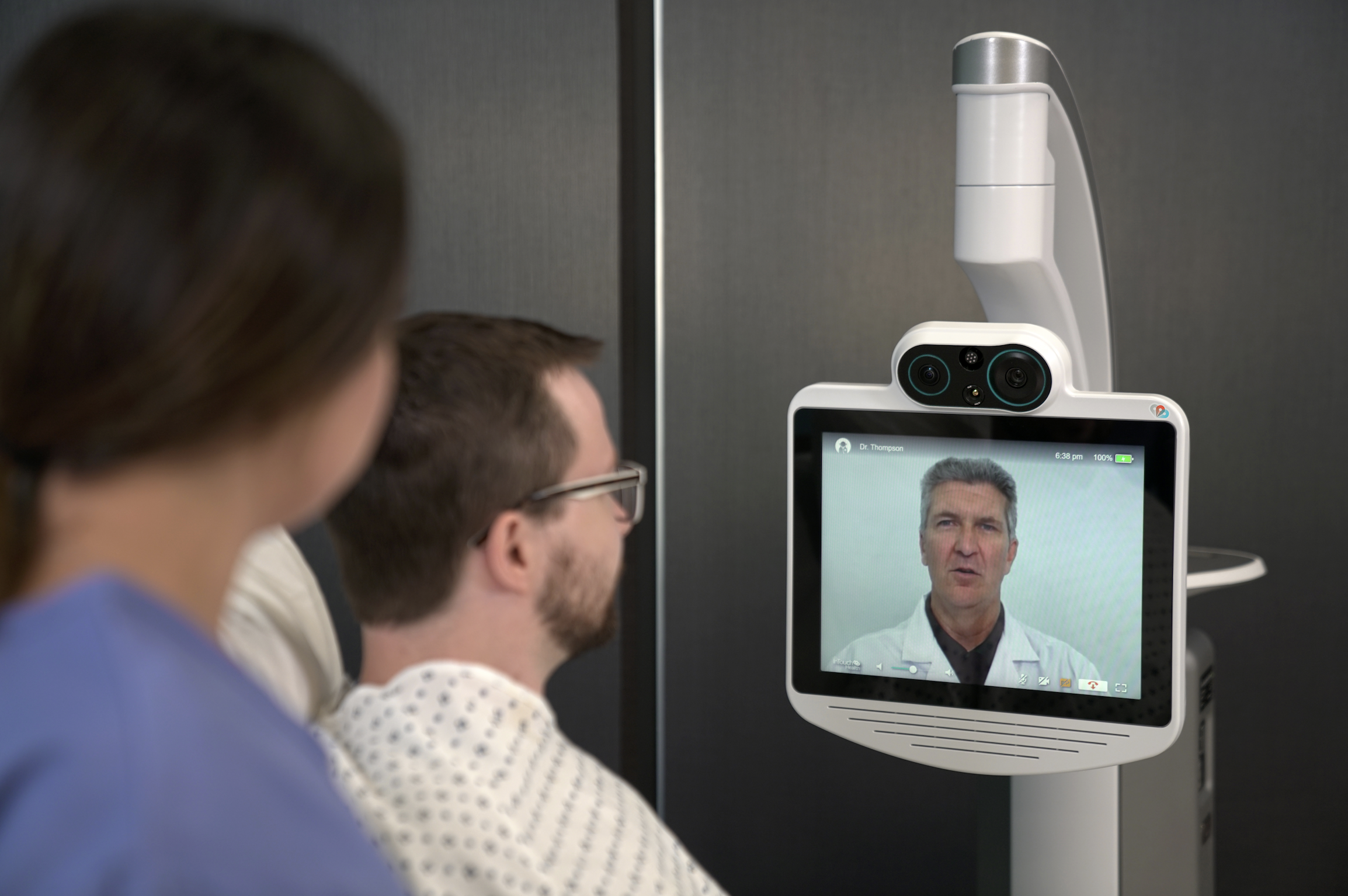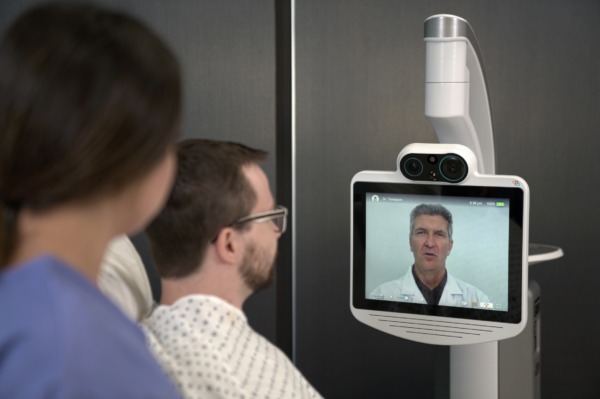
13 Jul Telluride Med Center: Adding Stroke Robot to Team
The Telluride Hospital District has announced a new partnership with Denver-based healthcare provider HealthONE to offer patients suffering stroke-like symptoms real-time access to a neurologist via the HealthONE Virtual Network (H1VN) telemedicine system, or what the doctors and nurses at the Telluride Medical Center are calling the “Stroke Robot.”

With the help of this technology, a neurologist will be able to virtually see a patient, examine them and, with the assistance of the Emergency Department team, make recommendations for acute care.
“Every second counts in minimizing the damage a stroke can cause to the brain – quick assessment and personalized care are key,” said Dr. Chris Fanale, who developed the H1VN Tele-Stroke Program. “As a stroke neurologist, I can have a conversation with the patient and family, examine the patient’s ability to move and speak, and even zoom in to assess pupil reactivity. We can talk to EMS and ER staff and assess monitors and vital signs immediately. There is no other system in the region that is currently offering this level of care to stroke victims.”
Dr. Diana Koelliker, medical director of emergency & trauma services at the Telluride Medical Center, is enthusiastic about the partnership.
“This program uses proven telemedicine technology to bring the best of healthcare to communities like ours that need 24/7 access to specialists, but do not have local resources due to location,” said Dr. Koelliker. “Through the ‘Stroke Robot,’ our providers can be joined remotely by an internet-based, HIPAA-compliant telemedicine system, which allows real-time, fully interactive acute consultations.”
Implementation of this program means neurologists and radiologists at Swedish Medical Center in Denver can instantly view the medical center’s CAT-scan images, lab tests, and notes from a physical exam along with a stroke-scale assessment provided by the healthcare providers at the Telluride Medical Center.
Assistance provided by the neurology team on the other side of the ‘”Stroke Robot” will help local emergency providers decide if they should administer life-saving blood clot medicine, like TPA, or whether the patient should be flown to one of the nearby comprehensive stroke centers available in Grand Junction or Denver.
Telemedicine has become an accepted practice in a growing number of remote communities and is currently used in over half of all U.S. hospitals. As of this year, there are currently about 200 telemedicine networks, with 3,500 service sites in the U.S. These telemedicine programs allow for consultations in a variety of medical specialties, including stroke, mental health, trauma care, burns, pediatric care, pharmacy, and chronic care management.
Dr. Koelliker is looking forward to using the ‘”Stroke Robot” for the care of acute stroke patients and expects to eventually expand the program to include general neurology and acute psychiatry patients and to connect remotely with endocrinologists and dermatologists.
“Tele-psychiatry is equally as effective as face-to-face visits and allows us to offer high-quality psychiatric services round the clock regardless of where the facility is located,” explains Dr. Michelle DeNault, Tele-Psychiatry Regional Medical Director. “
“This life-saving tool will expedite the best care and allow us another measure of comfort that we can handle whatever comes through the door,” said Dr. Koelliker.
According to Dr. Koelliker, access to this state-of-the-art telemedicine will liken the experience for area stroke patients to that of someone having a stroke in a major city. Patients at the Telluride Medical Center who are experiencing stroke-like symptoms will have the benefit of this new technology, thanks to funding from the Telluride Medical Center Foundation, as soon as July 1.
Telluride Medical Center is the region’s only 24-hour emergency care facility. The Emergency Department is designed to furnish the residents and area visitors with a full spectrum of Emergency and Trauma services. The medical center is a Level V Trauma Center. Emergency services are provided by Board Certified Emergency Physicians, Registered Nurses, and Radiological Technologists.
“This technology and these partnerships will ultimately allow more of our patients to get the best care available without having to drive to larger hospitals,” said Dr. Koelliker.


Sorry, the comment form is closed at this time.